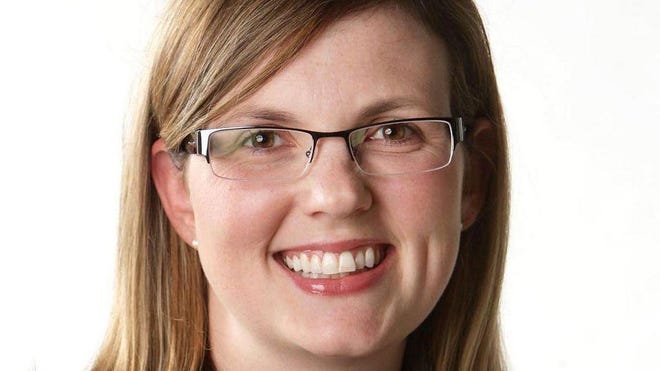

It was 1992, I was 11 years old and in my old bedroom, doing what, I’m not sure. But my bedroom had two doors — one of which opened up to the kitchen, where I could hear my mother talking to her boyfriend as she cooked dinner. It was then that I heard my name.
I slowly crept closer to put my ear to the door, which was closed but their voices were still audible. It was then that I heard a conversation that was seared into my brain forever — the boyfriend thought I had a weight problem and could grow up to be obese.
Being an 11-year-old girl is hard. Tackling social pressures, bullying at school, and going to a summer camp where everyone thinks you are a boy because you have a new, very short haircut — it was a tumultuous time in my life. And I was chubby. When kids are forming ideas about who they are and who they want to be, overhearing family members talk about their weight can be shattering to their self-confidence.
It was only this year that I confessed to my mother that I had overheard that conversation. While I remember it clearly, she does not.
But the topic came up recently when one of my children — for their privacy, I won’t say who — started making comments about their weight, saying they are chubby or fat, grabbing the rolls on their belly while sitting in a hunched position. My husband and I try to take on weight in a positive way — not really mentioning it other than telling our kids that it’s good to eat healthy foods and stay active but that it’s what’s on the inside that matters most. A family member, however, has made comments, both to us and to our child.
It was on our way to a school “meet and greet” last week when my child chirped in, asking if it was better to join “the app that Grandmom has” — Weight Watchers — or just not eat food at all. My heart sank. I told my child that no app was needed, that we just need to focus on eating healthy foods and being more physically active as a family, but that we can’t just not eat. I told my child that I’m not worried, because while I went through a chubby stage in elementary school, as soon as I hit seventh grade, I stretched out as I grew to 6 feet tall by high school. That I have faith the same thing will happen. A growth spurt will hit, but that weight is not something to worry over at this point. More than anything, our bodies need healthy foods and nutrients, to grow strong, I said.
Trying to support self-confidence in our children is difficult, but especially in a world that is so body-conscious. I’ve made a point not to mention dieting or my own weight around my children, because I know how easily shaped their minds can be. I also have a family member who battled an eating disorder for years, and that’s not something I want my own children to ever have to deal with, if I can help it.
Healthy eating and physical fitness are important, but not something a kid should be stressing over. I hope, for my child’s sake, I made my point.
According to NPR, here are some tips for discussing weight with your children:
- Never tease your child over their weight, and watch what relatives say to your child if they mention it.
- Promote a positive self-image, instead of focusing on weight.
- Don’t put a child on a diet, but instead try modifying the entire family environment to support the child. Try to eat more healthy as a family.
- Focus on behaviors and not body size.
- Model healthy behaviors as a parent.
Lydia Seabol Avant writes The Mom Stop for The Tuscaloosa News. Reach her at lydia.seabolavant@tuscaloosanews.com.